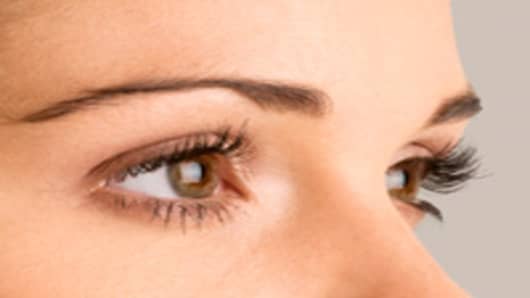The latest pseudo-Freakonomical study making the rounds comes from a quintet of researchers at such luminous institutions as Harvard Medical School, Boston University, The Dana-Farber Cancer Institute... and Procter & Gamble Beauty & Grooming.
You can read the whole study here, but the gist of it is this: 25 female subjects of various ethnicities, ranging in age from 20 to 50, applied makeup to their faces for four different looks: barefaced, natural, professional, and glamorous. Headshots of the women from the neck up were then shown to a group of 149 adults (including 61 men) who were then asked to judge the women in the photos for “attractiveness, competence, likeability and trustworthiness.”
The results came in exactly as you might have expected. From the abstract:
The results suggest that cosmetics can create supernormal facial stimuli, and that one way they may do so is by exaggerating cues to sexual dimorphism... beauty has a significant positive effect on judgment of competence, a universal dimension of social cognition, but has a more nuanced effect on the other universal dimension of social warmth, and that the extended phenotype significantly influences perception of biologically important signals at first glance and at longer inspection.
That is, the level competence the “judges” imputed on each woman varied with the amount of makeup she was wearing in each photo.
Or, as The New York Times put it, “Want more respect, trust and affection from your co-workers? Wearing makeup — but not gobs of Gaga-conspicuous makeup — apparently can help.”
Here’s the problem: The premise of the entire study is so contrived that the outcome was inevitable. People were told to perform an absurd task: look at a photo of a woman and make a judgment about her competence and trustworthiness. The people making these judgments were not asked about their confidence in their judgments – had they been asked the question “How confident are you about your judgment of competence and likeability based on a 250 millisecond glance at a headshot?” and the men had replied “Extremely confident,” then we might have a story.
Still: feminist bloggers are mad as hell. Feministing.com rants that “We already know we live in a culture where women are judged by what they look like–you don’t need a multi-institution study to tell you that.”
But here’s the thing: This study actually doesn’t show that women are judged based on what they look like. The real story here is that people were asked to perform a task with what most people would agree is inadequate information needed to make a judgment. So they did the rational thing: They made a judgment based on the information they had, regardless of whether it was, strictly speaking, relevant. And the information they had was a face, and so they made their judgment based on that.
Here’s another example of this: Researchers Amos Tversky and Daniel Kahneman asked their subjects to guess the percentage of African nations that were represented in the United Nations – a question most people would really have no idea how to answer. But before they answered, a wheel of fortune was spun in front of the participants. They were then asked to guess whether the number of African countries in the UN was higher or lower than the number the wheel had landed on. Then they were asked to guess the percentage of African nations in the UN. The researchers found that the number that the wheel had landed on influenced people’s guesses greatly. "For example,” they wrote, “the median estimates of the percentages of African countries in the United Nations were 25 and 45 for groups that received 10 and 65, respectively, as starting points."
So should we conclude based on the study that people are stupid enough to think that spinning a number wheel has anything to do with the number of countries in the UN? Of course not. It’s just that when people are pressed for answers to questions they have no idea how to answer (for instance “How many African countries are in the UN?” or “How competent is this woman you don’t know anything about?”), they will base their judgments on whatever information happens to be in front of them at that moment, regardless of its relevance. That was what the researchers behind that study were trying to show.
The decision to err on the side of preferring the made-up faces to the bare faces probably wasn’t even an irrational one, given that these people were told to make these judgments and not given any other information. Applying makeup requires competence of some kind (although the women in this study did not apply their own makeup), and people who wear makeup are more concerned about how they’re perceived then people who don’t wear makeup, which, on average, might make them more likeable. To wit: my medieval art professor in college didn’t care what anyone thought of her, and so she wore no makeup and acted like a jerk.
This study belongs to a category of research that I call “Ask a stupid question, get a stupid answer.”
But I guess that’s what happens when Procter & Gamble Beauty and Makeup pays for a study on the efficacy of makeup.
Questions? Comments? Email us atNetNet@cnbc.com
Follow NetNet on Twitter @ twitter.com/CNBCnetnet
Facebook us @ www.facebook.com/NetNetCNBC


